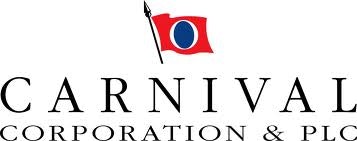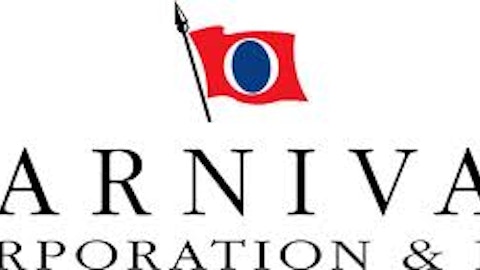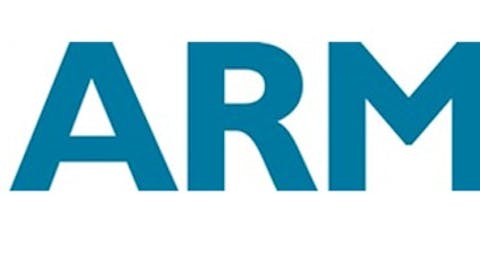Passenger safety on cruise lines has been a hot topic lately after the occurrence of several incidents that have led to passenger deaths, emergency evacuations, and cancelled trips. The Cruise Lines International Association board has unanimously approved a passenger bill of rights that is designed to ensure the “safety, comfort, and care” of cruise guests. Reading through the list of rights, it appears the industry is putting in writing what passengers have expected all along.
So far, the incidents at sea have not had a major long-term impact on share prices. It will be interesting to note if the industry’s latest move to address passenger safety across all major U.S. cruise lines, such as Carnival Corporation (NYSE:CCL), Royal Caribbean Cruises Ltd. (NYSE:RCL), and Norwegian Cruise Line Holdings Ltd (NASDAQ:NCLH) will support the share values of these companies and assure passengers that cruising is a safe mode of travel.
Carnival’s troubled and no-fun ships
Here’s an example of how trouble at sea can affect a company’s value — on the week of February 11, as news broke out that Carnival’s ship Triumph was headed back to port due to a variety of problems, company shares ended the week almost 5% lower.
Carnival Corporation (NYSE:CCL) stated it expects cruise disruptions and ship repairs to drive down earnings by $.08 to $.10 per share for the first half of Carnival’s 2013 fiscal year. So far, the greatest impact to the company was the 2012 tragedy, where shares plunged dramatically but shortly thereafter regained their value.
The five-day period from May 23 to May 30, the time surrounding the announcement of the passenger bill of rights, Carnival Corporation (NYSE:CCL) shares rose about 2% from $32.88 to $33.51. The company’s latest 2013 earnings guidance estimates net revenue to be down 2% to 3% due to higher booking volumes at reduced prices. Full year 2013 EPS was revised down to $1.45 to $1.65, down from previous estimates of $1.80 to $2.10.
Royal Caribbean affected despite safety record
Royal Caribbean Cruises Ltd. (NYSE:RCL)’s website boasts about the company’s 42-year safety record. However, the company was still affected by the 2012 accident of the Carnival-owned ship Costa Concordia and Royal Caribbean saw its passenger bookings in Europe drop. On the trading day following the accident, the company saw a drop in share value of about 6% from $28.75 to $26.97, while Carnival Corporation (NYSE:CCL)’s stock plunged about 14%.
Royal Caribbean Cruises Ltd. (NYSE:RCL) resorted to higher-than-expected discounting and during the fourth-quarter of 2012 posted a loss of $393 million, $1.80 a share. On May 27, the company experienced its own issues as its ship Grandeur of the Seas had a fire onboard and was forced to end its trip early, yet share prices were barely affected.
Net revenue yields are increasing, but still lag 2008 highs by 2.7%, in part due to what the company calls “unexpected events.” EPS outlook for 2014 and 2015 are estimated at $3.08 and $3.90. Analysts estimate a growth rate for Royal Caribbean Cruises Ltd. (NYSE:RCL) next year of 25% and a 5-year average growth of 16%, which is moderate growth for the industry.
Norwegian’s challenging environment
Norwegian Cruise Line Holdings Ltd (NASDAQ:NCLH)’s 2012 first-quarter results did not appear to be impacted by the Costa Concordia accident. The company was also not publicly traded at the time. Its first-quarter 2013 results as a new public company showed adjusted net income of $12.9 million and EPS of $.06 a share, up from $3.3 million and $.02 a share in 2012. The company attributed most of its challenges to the current economic environment.
Norwegian Cruise Line Holdings Ltd (NASDAQ:NCLH) seems to be the least affected by the recent issues experienced by its competitors. Earlier this year, it had a stellar IPO with company shares priced at $19 and the stock going on to trade as high as $32 a share. The full year earnings guidance for 2013 net yield is 3.5% to 5.5% and adjusted EPS is $1.20 to $1.40.
Conclusion
With a passenger bill of rights, the cruise industry shows greater commitment to passenger safety and this can help prevent customers, especially first-time cruisers, from running to the nearest exit. A recent May Harris Interactive Poll, which surveyed about 2,000 U.S. adults after the Triumph incident, noted that seven major cruise lines, including the three discussed here, showed drops between 8% to 12% in perceived quality and trust scores measured at the beginning of the year. Interestingly, Norwegian Cruise Line Holdings Ltd (NASDAQ:NCLH), despite having a five-year growth forecast of 31%, had a drop in intent to purchase of 15%, second highest to Carnival Corporation (NYSE:CCL)’s 20%. Average intent to purchase among the seven cruise lines was down 11%.
In order to fill their ships, cruise lines may need to resort to continuing sales of discounted cruise fares in the short term and maybe even longer. Before buying shares in these companies, investors may want to look for signs that the deep discounting of cruise line travel has ended and prices are beginning to move up again. If these companies continue to have safety issues on their ships, it could take even longer before the industry returns to normal..
Eileen Rojas has no position in any stocks mentioned. The Motley Fool has no position in any of the stocks mentioned.
The article The Effect of Passenger Safety on Cruise Line Shares originally appeared on Fool.com.
Copyright © 1995 – 2013 The Motley Fool, LLC. All rights reserved. The Motley Fool has a disclosure policy.



